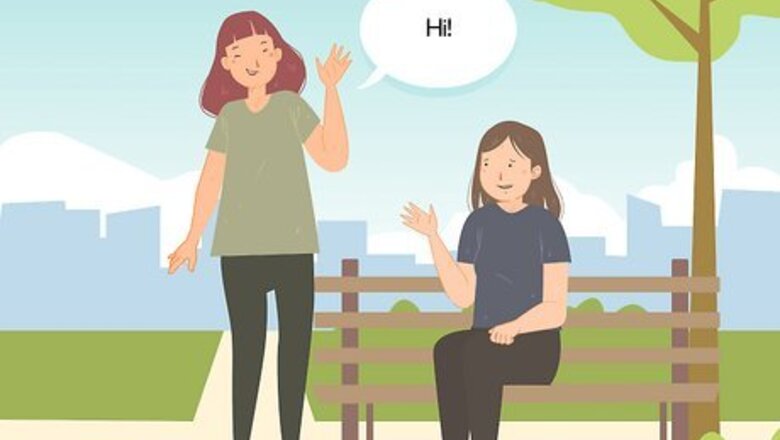
views
Approaching a Shy Person
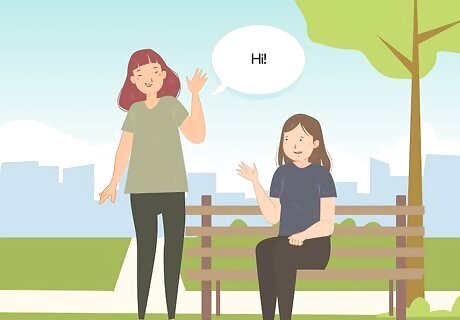
Walk up to them on your own, not with a group. Have a nice, friendly smile on your face. Be calm and polite. Introduce yourself and ask for their name. Refrain from talking in an overly excited tone which can overwhelm a shy person. Talk softly and in a moderate tone. Don't ask them all of a sudden either---it could startle them. Be sure your approach is friendly and inviting, but not overly excited to the point where it seems insincere. You might say something like "Hey, I noticed you standing here on your own. I'm Jeff, what's your name?" Approaching the person on your own as opposed to with a group increases the likelihood that they will engage with you. Shy people typically feel overwhelmed and intimidated by large groups.
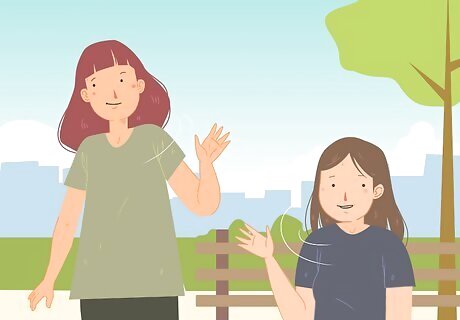
Make minimal eye contact at first. Shy people tend to feel self-conscious or awkward in social situations. This feeling is intensified when they are subjected to intense stares. Staring at the other person nonstop can feel threatening. So, aim to avert your gaze occasionally to help your new friend feel more comfortable. Science has shown that direct eye contact increases self-awareness, which is an uncomfortable state for extremely shy people. To increase their comfort level with you, aim to make eye contact between 30-60% of the time during a conversation. Generally, you should make eye contact slightly more when listening than when talking. To further help your new friend adjust to you, stand beside them rather than face-on. This positioning can often feel less threatening. Just be sure to turn to face them slightly with your body to show interest and engagement.
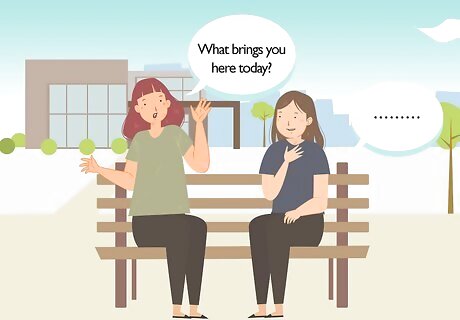
Ask open-ended questions. To draw out a shy person, you might start by asking a few questions. Open-ended questions, that is, those that require more than a "yes" or "no" answer are best. These types of questions allow the person responding to answer in their own words rather than offering limited response options. They also give your potential friend the chance to talk as little or as much as they would like. For example, if you are at a social gathering, and you want to strike up a conversation with a shy person who is hiding out in corner or leaning against a wall, you can ask "So, how do you know the host?" Other open-ended questions might include: "What brings you here today?", "What kind of things do you do for fun?" or "What was your impression of the film?"
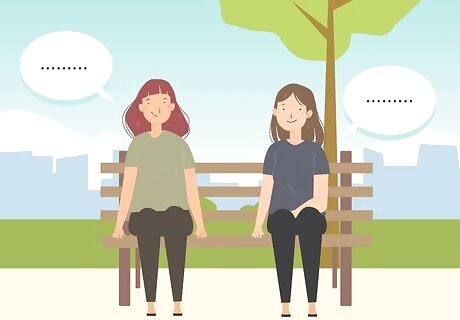
Learn to be okay with silence. Conversation involves a natural ebb and flow of speaking, listening, and silence. When you're outgoing, you may assume silence is a red flag that your attempt to socialize is failing. It's not. A few seconds of silence is typically okay, especially with a shy person. These individuals may require longer periods to process what was said and respond accordingly. After the silence settles in, simply choose to start a new thread in the conversation or take the opportunity to end the exchange. If you want to continue talk, you might try to find a connection from something that was said earlier like "So, you said your brother works on cars?" If you want to save both of you from an awkward silence, you might say "Well, nice meeting you, Becky. We'll have to catch up again sometime."

Keep the initial encounter brief. Even if an awkward silence doesn't threaten the conversation, it is still a good idea to keep the exchange short and sweet. Once the two of you have briefly interacted find a natural lull in the conversation to make your exit. Shy people take some time to warm up to new people and new situations. Respect that need by limiting the first exchanges, then gradually the duration of interactions as the person becomes more comfortable with you.
Enhancing the Connection
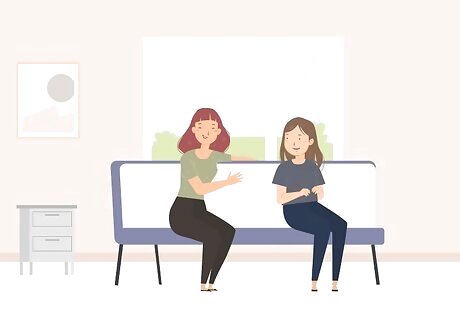
Be prepared to initiate conversations. If you're serious about making friends with an extremely shy person, you will have to initiate. This means having quite a few conversation-starters in your pocket and often having to pick up the ball when the conversation starts to lull. Of course, in some cases, the shy person might warm up quickly and start engaging more. However, in the early stages of your friendship, you will have to be prepared to start and/or carry the conversations.
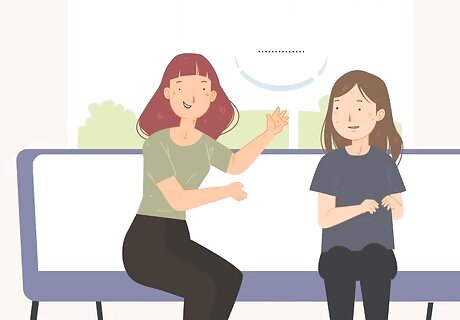
Talk about similar interests. When starting a conversation with a shy person, you may want to avoid small talk. In general, many introverted people prefer more engaging and deeper conversations about ideas as opposed to surface-level topics like the weather or weekend plans. Try to stimulate your shy friend by observing what they seem interested in talking about and sticking to those topics. For example, if your friend seems to light up when discussing a certain television show, try to get her to go into more detail about it. You might ask "Who's your favorite character on the show, and why?" or "Tell me about the episode that officially made you a fan of the show."
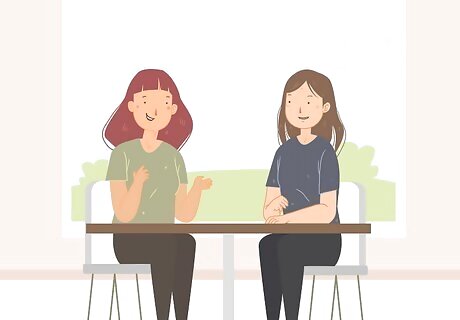
Demonstrate open body language. Shy people are often fearful of social interaction, sometimes responding to these circumstances with physical signs such as sweating, a pounding heart, or a red face. They often worry excessively about how others view them. Use your own body language to create a soothing and less-threatening exchange. When you are around your shy friend, be sure to: Make occasional eye contact (don't expect any in return) Orient in their direction during conversation Lean in to show interest in the conversation Keep your arms and legs uncrossed and relaxed at your sides Smile and nod to encourage her to continue talking

Share a secret to deepen the intimacy. Self-disclosure is a bold yet effective way to turn a casual acquaintance into a friend. Friends know things about one another that the general public may not. If you're hoping to upgrade your relationship with a shy person, open up to them in a personal way. One of the main aspects of friendship is intimacy. You can achieve intimacy through appropriate self-disclosure. Be warned, however, that it's unnecessary to share your deepest, darkest secret. In fact, doing so, may scare your new friend off because of the sudden intimacy. Start with something rather small but that many people don't know. You might even disclaim your self-disclosure by saying "A lot of people don't know this but...".
Respecting Differences
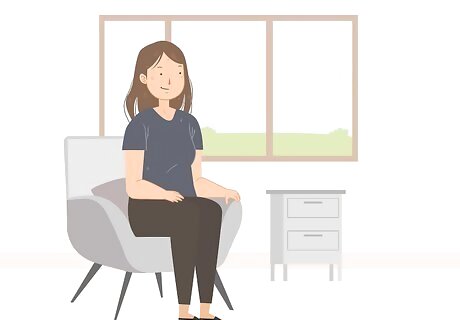
Don't take it personally when your friend needs alone time. People who are uncomfortable in social situations tend to become drained when they have to socialize for an extended period. Allow them time alone without getting offended. It's not about you; your friend just needs time for quiet to recharge. Although it may not seem like it, your shy friend may be terribly uncomfortable during the entire interaction. They may be anxious to get away to process the exchange.
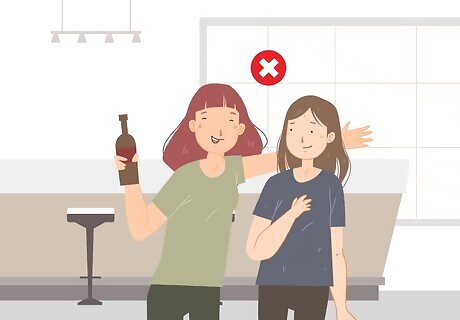
Avoid trying to make your new friend do things outside their comfort zone. Outgoing folks might think all their shy friends need to become social butterflies is a little push. Shyness can be a serious social detriment that inhibits people's relationships and work lives. It's not something that will go away by challenging the person to take a risk. If you take this route, you can end up causing distrust and making your friend retreat from you. You might suggest a few "exciting" things to do with your new friend, but if they don't seem interested, don't force the issue.
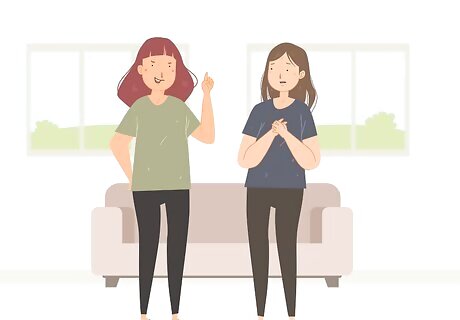
Try not to ask why the person is shy or acting a certain way. Another quick route to ruining the friendship is commenting on your friend's shy nature. Treat your friend just as you would any other. There's no need to point out their shyness. Asking why your friend is so quiet or introducing them as 'the shy one' can be quite insulting. This will probably annoy your friend and cause them to be even more self-conscious. As a result, your behavior may actually make them withdraw even more rather than getting them to open up.

Understand their shyness. By doing a bit of research you can better understand and empathize with your friend's social behavior. According to science, shy people tend to feel awkward or fearful of social situations, particularly when around new or unfamiliar people. Your friend may experience a pounding heart or an upset stomach. They may think that everyone is looking at or judging them. You can be a better friend to a shy person by recognizing that all people feel shy on occasion. Your friend just appears to be extremely shy. They probably aren't being shy because they don't like people or even because they want to avoid them. They are simply uncomfortable in most social situations. They probably badly want to belong, but don't know how. Help them feel a sense of belonging by refraining from judging or labeling their behavior.
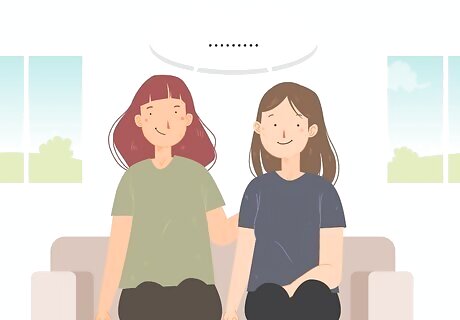
Be patient. Whether it's sitting through awkward silences or waiting for your extremely shy friend to open up to you, you have to exercise patience. If you are genuine and kind, eventually this budding relationship will fully blossom. Don't push your new friend to open up. Allow the friendship to unfold at its own pace. That way, you both will be comfortable with where the friendship is going, and your shy friend can be themselves around you.



















Comments
0 comment